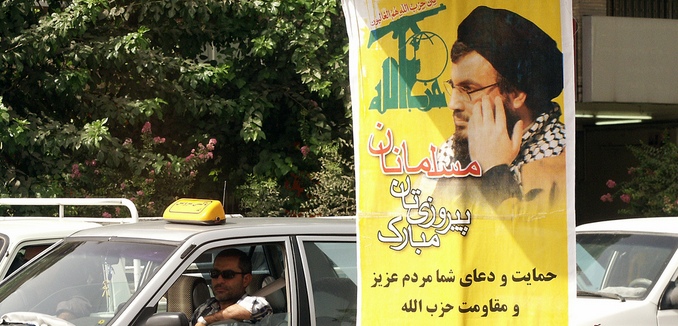An analysis written for Lebanon’s NOW media outlet yesterday argues that Hezbollah’s involvement in Syria has “strained” the terrorist group’s resources and is potentially alienating it from its power base, the Shiite population of Lebanon. The author of the analysis, Hussain Abdul-Hussain, observed that in order to justify its involvement outside of Lebanon, Hezbollah had to explain itself to its constituency.
But before winning in Syria, the party had to present its supporters with a narrative. It said its Syria campaign was going to be short and would defeat Sunni extremists. Then, there was a blowback and the extremists took the war to Beirut, which the party successfully stopped. Yet despite the victories it celebrated, Hezbollah continued fighting in Syria with the elusive promise of finishing off the rebels “soon.”
With its involvement in Syria dictated by its sponsor Iran, initially Hezbollah performed well, often even better than Syrian President Bashar al-Assad’s forces. However, there was no quick victory to the war, and the continued fighting is now depleting Hezbollah’s forces.
Today, there is hardly a Shiite village that has not lost a dozen or more of its men. Sooner or later, Hezobllah will run out of men to recruit, which will pose a serious problem for the party.
Perhaps in Iran, where almost every one of the 70 million is Shiite, numbers do not matter. But they do in Lebanon, where at one million, the Shiites form a quarter of the population. In Syria, the Alawites, who are not Shiites, number two million out of 16 million Syrians. The number of Shiites in Syria is statistically insignificant.
The result of the prolonged conflict has been “that Lebanon’s Shiite population is thinning out.” Hussain observes that few from his extended family remain in Lebanon. He concludes:
The disparity in numbers that clearly favors the Sunnis in the Levant is beginning to catch up with Hezbollah, despite its superior military capabilities. Hezbollah finds itself exhausted and bruised, and there seems to be no end in sight.
Last week, Arabic media reported that the losses Hezbollah has suffered has led to dissension in its ranks. Matthew Levitt of the Washington Institute for Near East Policy argued that when Hezbollah took credit for the attack on the border with Israel earlier this month, it was likely “burnishing [its] ‘resistance’ credentials among its domestic Shiite constituency.”
That Hezbollah continues to do Iran’s bidding by aiding Assad in Syria even at the expense of its main constituency is further confirmation that its primary function is as “the tip of an Iranian imperial spear.”
[Photo: Giorgio Montersino / Flickr ]




